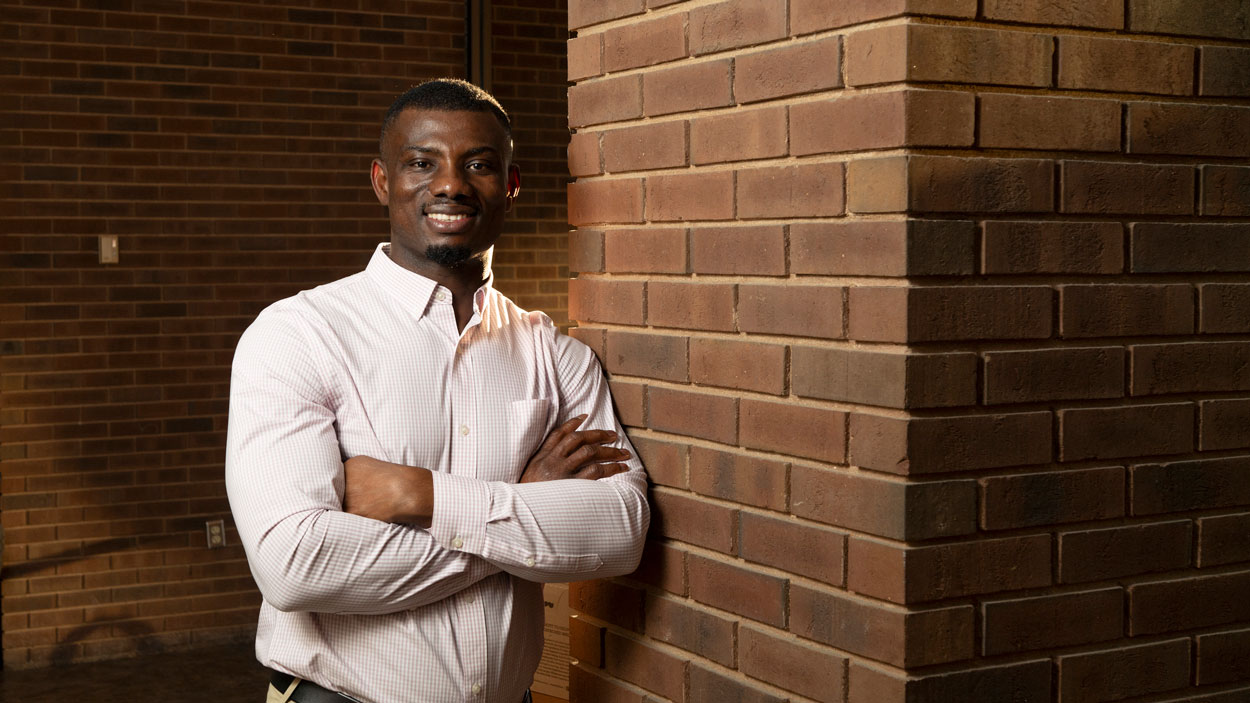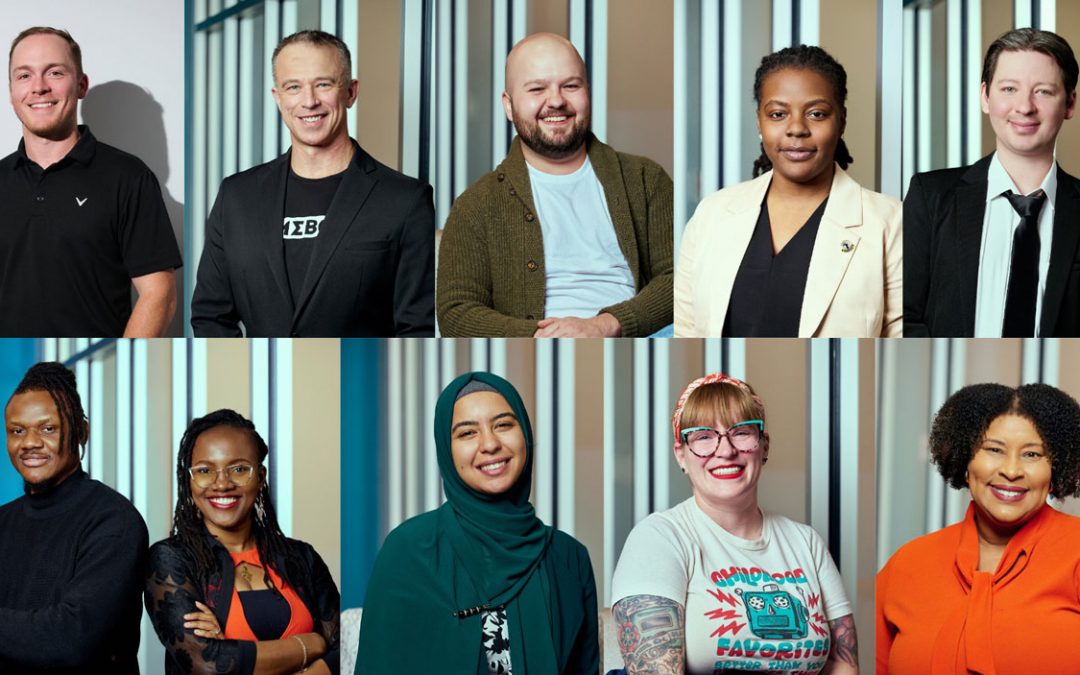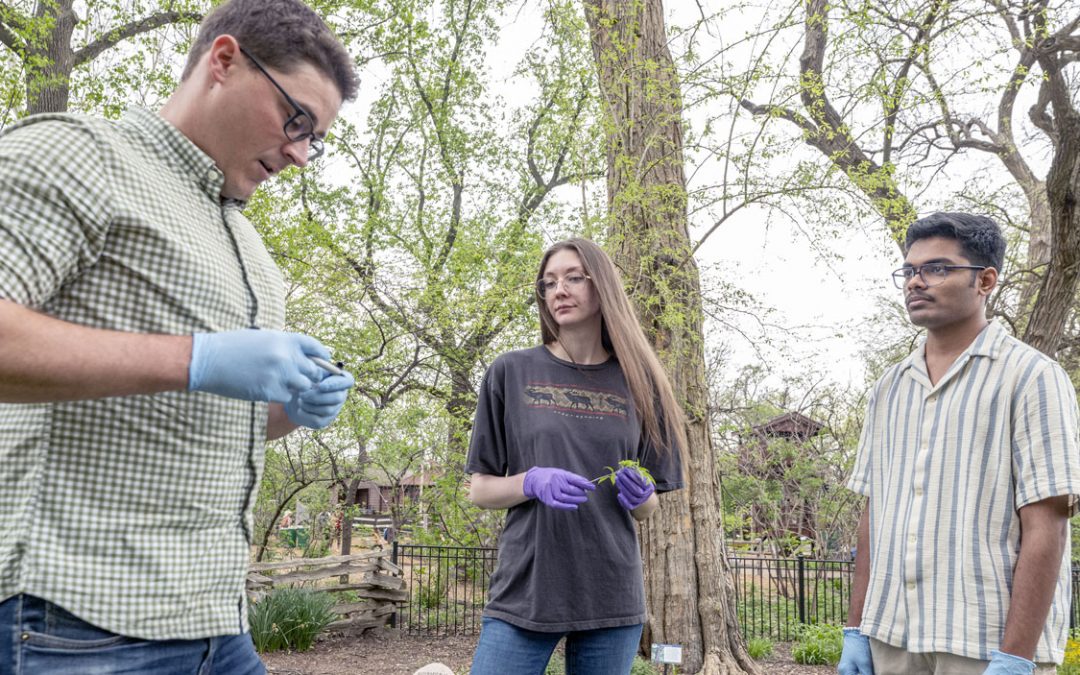
John Ampomah is finishing his master’s degree in criminology and criminal justice and plans to enter the PhD program in the fall. (Photo by Derik Holtmann)
Before he became an Olympian in the javelin, John Ampomah went into law enforcement, joining the police force in his native Ghana in 2011. He’s now competed internationally for more than 12 years, serving as team captain in the 2016 Olympics in Rio de Janeiro. His athletic prowess also allowed him to continue his education. He was a two-time All-American at Middle Tennessee State while earning his bachelor’s in criminal justice administration, is completing his master’s this semester at the University of Missouri–St. Louis and will transition to the PhD program in the fall.
What brought you to St. Louis?
After 2016, I got a scholarship from the International Olympic Committee to train for the 2020 Tokyo Olympics. Along the way, I got a major injury that required surgery, and it took me three or four years to come back. That’s when COVID-19 hit. It was very tough. I didn’t have funding anymore, so I had to work to raise money to continue my athletics career. I came to the U.S. as an international student, and I had done international recruitment for Middle Tennessee State, so I thought I would work in the international education field. I moved to this area and started working at SIUE. Then I moved to SLU, and now I’m at WashU as an international student advisor.
Your thesis is focused on the topic of vigilante justice. Why were you interested in that?
Vigilante justice is a form of self-help. This phenomenon is not only endemic in Ghana. But my experience with this phenomenon started when I was working as a rookie police officer. I had an encounter with an angry mob when a colleague and I attempted to rescue a victim of vigilante justice in our precinct. This incident shaped my understanding of vigilante justice; it undermines not only the fundamental rights of victims but also the legitimacy of law enforcement and the Ghanaian justice system as a whole. When people perceive somebody to be criminal or to have violated the social order, instead of reporting the person to the police, they’d rather beat the person up.
What can police do to change that dynamic?
I think it’s more about what policymakers can do than the police in this sense. In Ghana, the general notion of vigilante justice is that the police are ineffective. While this may be true, another possible reason could be that the police are not even accessible. The focus of my thesis is how the visibility of the police force shapes people’s attitude toward supporting vigilante justice. My argument is that in communities where there is a police station or police patrol, vigilante justice support will decrease because people will view the police as effective in helping combat crime. If a person lives in a society where the laws are not accessible, it would be reasonable for them to develop their own crime control mechanisms. I believe this is what is happening in Ghana and many African countries.
This story was originally published in the spring 2025 issue of UMSL Magazine. If you have a story idea for UMSL Magazine, email magazine@umsl.edu.














